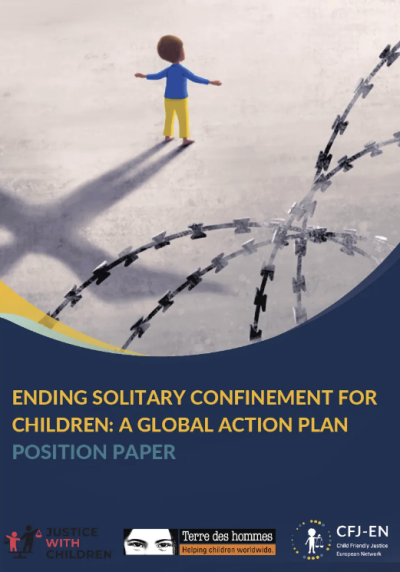Ending Solitary Confinement of Children: A Global Action Plan
- Log in to post comments
More than 7 million children are deprived of liberty around the world1. Of those, at least 410,000 are detained because they are accused or convicted of an offence, which means that many of them are potentially at risk of experiencing solitary confinement or its equivalent under another name, for some portions of their confinement. Solitary confinement or similar practices which consist of “physical and social isolation of persons who remain confined to their cells between 22 and 24 hours a day”, is recognised by the UN Special Rapporteur on Torture and other cruel, inhuman or degrading treatment or punishment as a harmful practice3. Examples of isolation include the “lack of meaningful social contact, whether by means of interaction with other inmates or penitentiary staff, visits, or participation in work, educational, and leisure activities, or sports.”4 Science-based studies demonstrate that these practices are particularly detrimental to a child’s mental and physical health, both in the short and long run. The signatory organisations call for the abolition of solitary confinement in favour of non-violent practices that are respectful of the fundamental rights of the child and in line with the principles of child justice.

